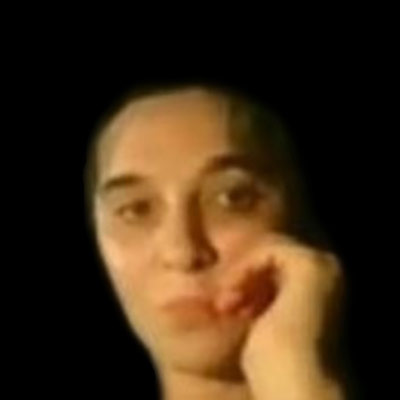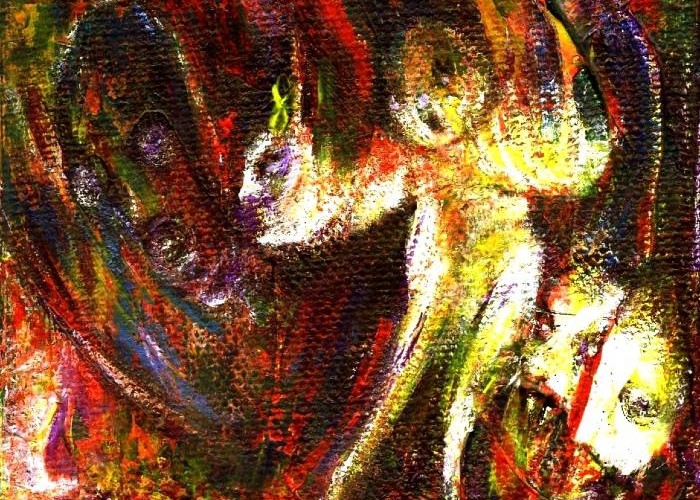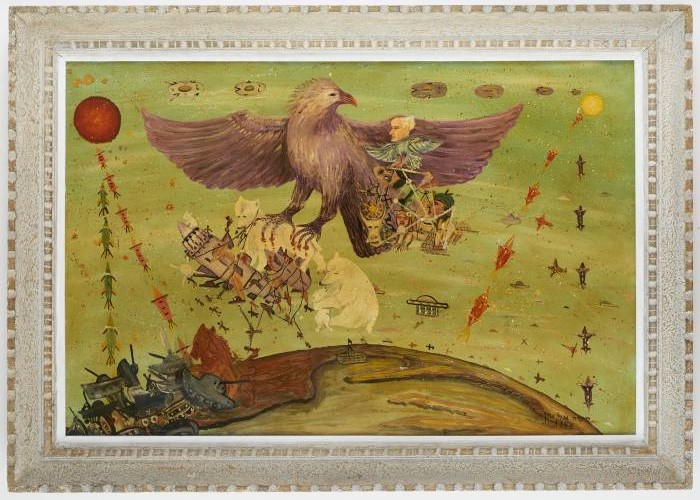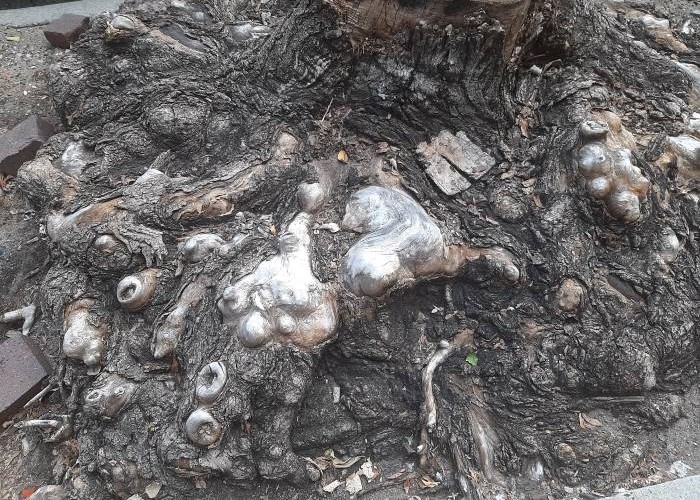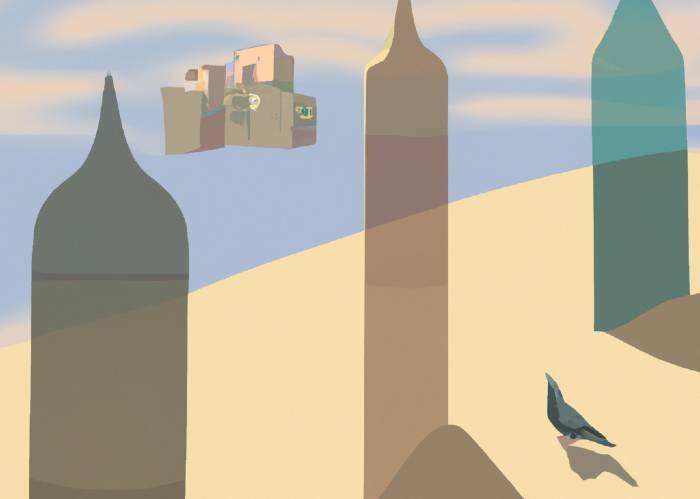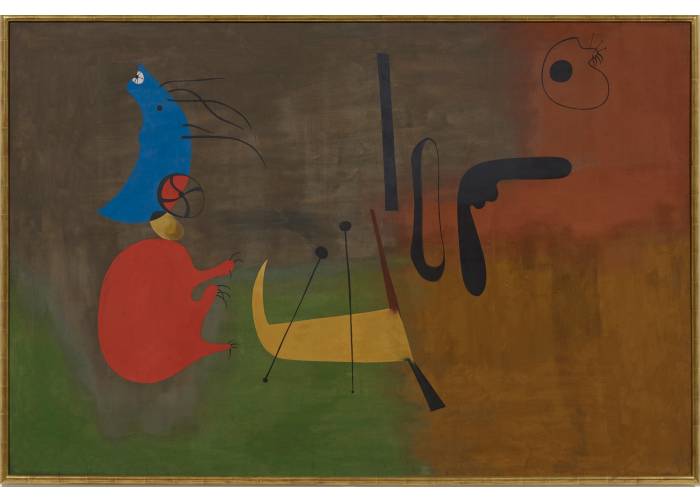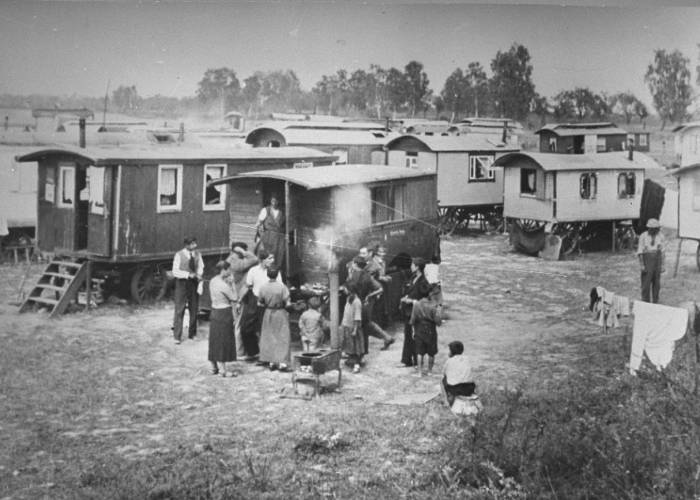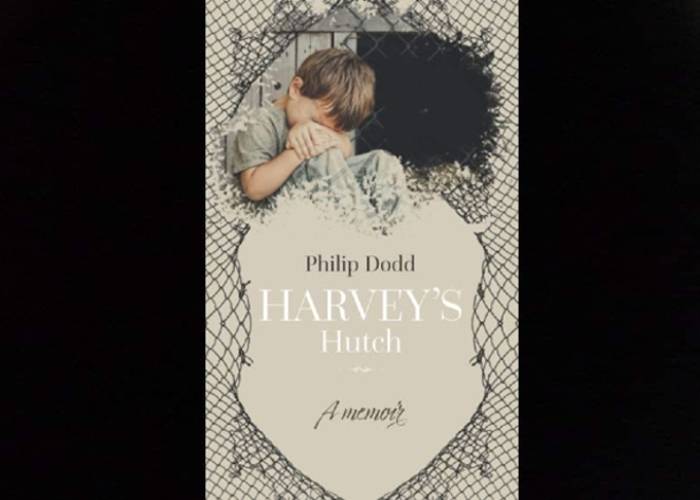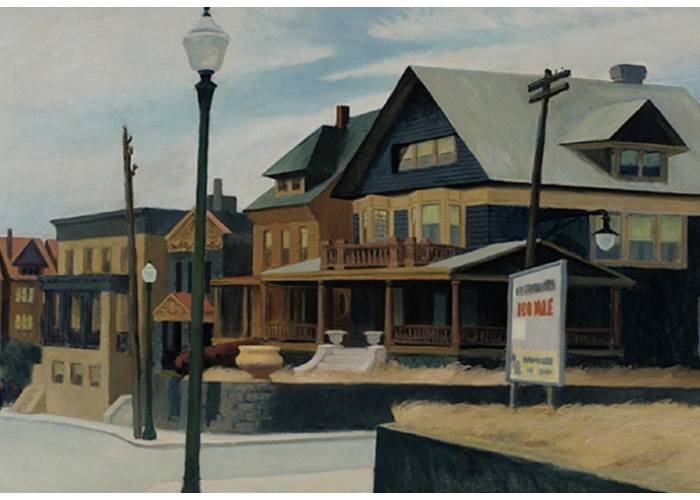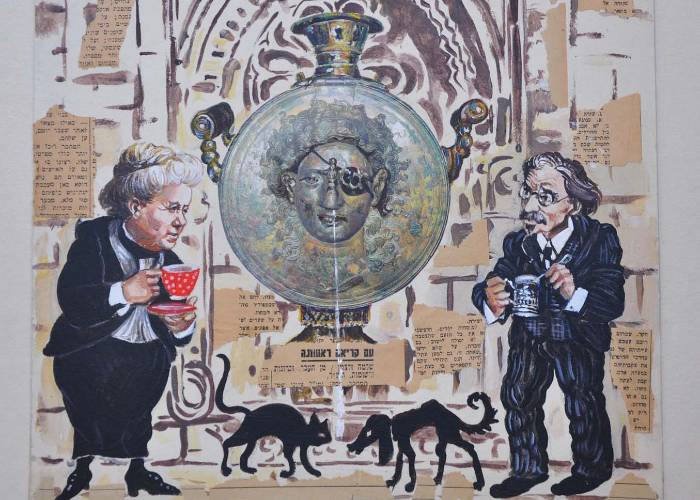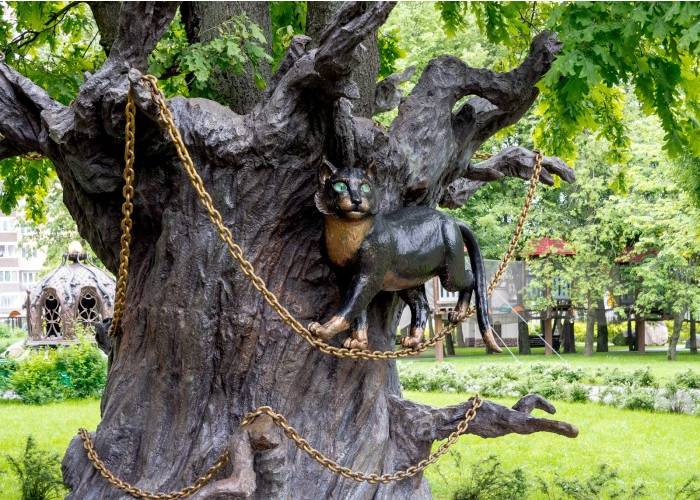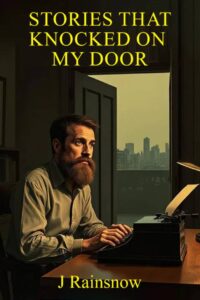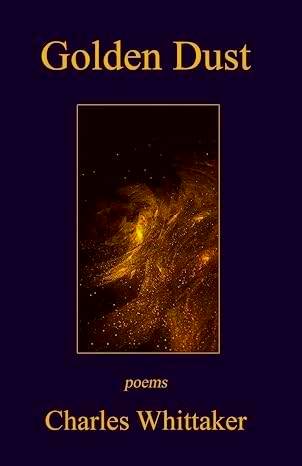So the tomcat walks around the chain, he walks to the right and the left, and now and then he breaks into a song or a tale, but no belly in the world can be filled with tales, not even his, so eventually, the hunger overcomes the tomcat and he stops telling tales, and lies down under an oak tree without songs and tales, without any mermaids and any thoughts. He just lies there for years, hungry and weakened, but no matter how long he lies there, he is not going to die, because, you see, he is a learned cat, not just some common tomcat. Twenty years passed like this. His father, i.e., the man who had brought him to life, though not exactly the way most fathers beget their children, anyway, where were we, oh yes, his poet father has departed for a better world, and the cat is still lying there, waiting for something… What is he waiting for? Who knows, say the peasants, who have been bringing him food from time to time. Мany years have passed, and a new century has begun, although the tomcat did not know about centuries. The peasants bring him leftovers less and less often, and after a while, they stop bringing him anything: there’s a famine in the country, they say, no food for people, be glad that we do not eat you! The cat felt vague anxiety, so he got up on all fours for the first time in years, and despite being weakened by hunger, started on his way.
He walked and walked without knowing where he was going when suddenly a wood goblin appeared out of nowhere. So the learned cat said to the wood goblin:
“Hello, wood goblin!”
But the wood goblin did not recognize the learned cat and walked away from him.
“I’m thе learned tomcat who told tales about you, but now you just keep trying to walk away from me!”
“You’re mistaking me for someone else, learned tomcat. I am not a wood goblin, I am a zek**, and I look like a goblin to you because I am on the run from the camp.
But the learned tomcat did not know the word “zek” (“convict”) since in his time there was no such word. The main thing though, he realized that this was not at all the goblin from his old tale, but a man, an unshaven and uncombed one, which was why he called himself a zek**. Well, fairytales are quickly told, but real life has a way of taking a while. So, the two of them walked and walked and walked until one fine day they met a mermaid, and the tomcat said: “Hello mermaid, come with us!”
And the mermaid replied, “Who is this us?”
“Well, I’m a learned cat – a while back I told a tale about you, don’t you remember? And this one here is a goblin… I mean, a zek**, my apologies, I keep forgetting this new word “zek”. Well, mermaid, come with us, it’ll be more fun to walk together!
There was no need to waste precious time persuading her. She agreed at once. And so the mermaid, the zek, and the learned tomcat walked on together. They walked and walked, and the tomcat grew so hungry that he started looking at the mermaid’s tail with desire – true, he was a learned cat, but like all cats, he loved fish, so he said, “Mermaid, give me a piece of your fishtail, I’m so hungry, I can’t walk anymore because of hunger!”
And the mermaid answered him, “I’m no mermaid, I’m a zek** too, only I’m a female zek. And it’s not a fishtail down there, it’s my hair that has grown so long and tangled after all those years in the camp that it started looking like a tail. Please, cat, do not eat my long hair, though you are a learned cat and not like regular cats at all, still, you will not like my hair.”
The tomcat was surprised. Now both of his companions – the wood goblin and the mermaid – turned out to be zeks. Meow, what a century! Well, he said to himself, what can you do! He got up on his weakened legs and trudged after his two zek friends in search of “freedom”.
“That’s what they call food, these zeks,” thought the tomcat, but he didn’t have time to think of anything else, because people with guns jumped out from behind the bushes and – bang! bang! – shot the mermaid and the wood goblin but left the cat alive. They lured him with a bowl of food, saying,
“And now, learned cat, tell us a story!”
And the poor cat was so hungry, and the mermaid’s fishtail in the bowl so tasty, that he stayed with these camp guards, and to this day he tells them a tale a day, only now it is no longer called “a tale” but something else. Yes, it is called something else now.
Translated from the Russian by the author
_____________________________________________________________
Notes:
* Lukomorye (Russian: Лукомо́рье) was a mythical region prominent in Russian folklore. In modern Russian culture, the word Lukomorye is most commonly associated with Pushkin’s fairy tale poem “Ruslan and Lyudmila”, beginning with the lines: “There is a green oak by the bay, / And on the oak, a chain of gold:/A learned cat, both night and day, / Circles upon that chain, of old: / And to the right – he spins a song, / And to the left – a tale of wrong.” (Eng. translation by A.S. Kline)
** Zek – a convict, prisoner in Stalin’s GULAG system of camps
_____________________________________________________________
Ходит, значит, ученый кот по цепи кругом, ходит, то направо, то налево, то песнь, как известно, заводит, то сказку, но сказками-то сыт не будешь, так, кажется, говорят, и от голода кот притих, сказки перестал говорить, улегся под дубом без песен да без сказок, без русалок там всяких и без леших. Лежит он, значит, и лежит себе, голодный, ослабший, но не помирает, ведь всё-таки не простой он кот, а ученый. Двадцать лет прошло; папа его, ну тот, что его создал, хоть и не совсем так, как обычно папы создают своих детей, но не в том дело, всё равно папа… ушел, значит, папа поэт в мир иной, а кот всё лежит, всё ждёт чего-то… И чего он ждёт? Да кто его знает, говорили крестьяне, время от времени приносившие ему еду. И вот уж много лет прошло, новый век настал, двадцатый, хотя кот и не знал про столетия. Крестьяне приносили ему еду всё реже и реже, а там и вовсе перестали, голод в стране, сказали, не до котов нам, радуйся, что тебя не едим. Почувствовал кот смутную тревогу, встал, значит, и хоть и ослаб он от голода, но пошел. Шел он и шел куда глаза глядят, шел и шел, и тут навстречу ему леший. Кот ему и говорит, — Здравствуй, леший! – А леший не узнает кота, мимо норовит пройти. —Ах ты, такой-сякой, — говорит ему кот, — не я ли про тебя сказки говорил, а ты вон какой, всё мимо пройти норовишь! — И отвечает ему леший, — Не леший я, а зэк, а что на лешего похож, так это потому что из лагеря бегу, там, мол, и стал на лешего похож. А кот не знает слова «зэк», в его время такого слова ещё не было, но главное, понял он, что не леший это из его сказки, а вроде, как человек, но очень непричесанный такой, потому, значит, и зовёт себя зэком. Ну, скоро сказка сказывается, да не скоро дело делается, шли они, шли, значит, шли да шли, и тут повстречалась им русалка, и кот, значит, говорит, — Русалка, а русалка, идём с нами!
А русалка в ответ, — С кем это с вами?
— Ну, я кот ученый, я ж о тебе сказку говорил, не помнишь, что ли, а это вот леший… то есть, не леший, прошу прощения, всё время забываю это новое слово «зэк». В общем, русалка, идём с нами, втроём веселее!
Ну, долго её уламывать не пришлось, согласилась, значит, русалка, и вот пошли они, значит, втроём – кот ученый, зэк, и русалка, шли да шли, шли да шли, и кот так проголодался в пути, загляделся на русалкин хвост — ведь хоть и ученый, а как все коты, рыбку любит, и говорит, — Русалка, а русалка, дай-ка я твой хвост рыбий съем, уж больно я проголодался, видишь, как исхудал, ходить больше не могу от голода, — а русалка ему в ответ, — А ведь никакая я не русалка, я тоже зэк, только женского пола, и не хвост это рыбий у меня, а просто волосы у меня так отросли в лагере, что на хвост стали похожи, а волосы ты, кот, не ешь, хоть и ученый ты, а все равно не понравятся.
Подивился кот на своих спутников – и леший зэк, и русалка зэк, что за век такой! Ну, сказал он себе, ничего не поделаешь, встал на ослабшие лапки и побрел вслед за своими зэками «свободу» искать. — Это они так еду называют, эти зэки,— подумал кот, а больше ничего подумать не успел, так как из-за кустов выскочили люди с ружьями, пиф-паф, пиф-паф, лешего и русалку застрелили, а кота в живых оставили, приманили к себе миской с едой, — А ну,— говорят, — сказку сказывай! …А кот был такой голодный и от рыбьего хвоста в миске шел такой аромат, что остался кот с этими вертухаями и до сих пор по сказке в день им говорит, только теперь это называется уже не «сказка», а … ну, в общем, по разному называется.
